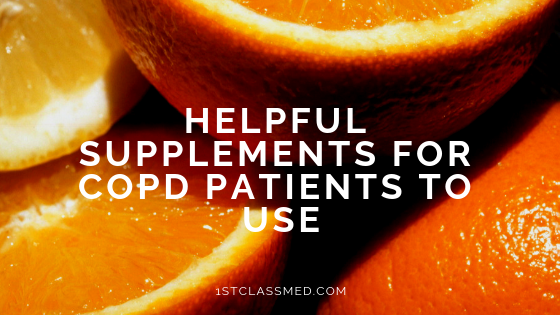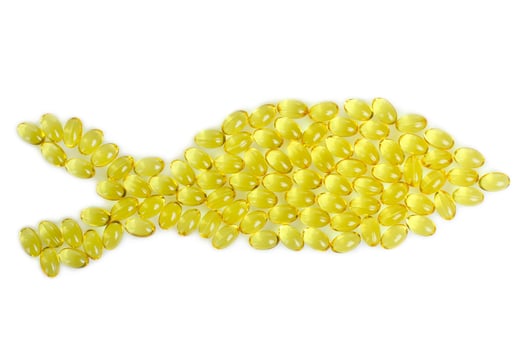
For those with chronic obstructive pulmonary disease, inflammation is common and painful.
Luckily there are things that those with COPD can do on a daily basis to reduce inflammation.
Supplements and vitamins are a great way for those with COPD to get the right amount of nutrients as well as help reduce inflammation.
Always discuss supplements with your doctor before starting them, as it is possible that certain supplements may not be right for you.
Fish Oil
Fish oil pills are great for a lot of people, as it contains omega-3 fatty acids, which is great for your health.
Fish oil is great for heart health, mental health, weight loss, eye health, bone health and helps reduce inflammation and asthma/allergy symptoms.
For those with COPD, fish oil is a great way to help reduce inflammation and support heart health.
Consuming oily fish 1-2 times a week is often enough for your daily dose of omega-3, but many people do not eat that much fish each week.
Fish oil pills are a great supplement for those who may not consume enough fish throughout the week.
The average dose of fish oil is recommended is roughly 1,000 mg daily, but this can vary, so speak with your doctor to find the best dose for you.
The World Health Organization recommends taking 200 to 500 mg of eicosapentaenoic acid (EPA) and docosahexaenoic acid (DHA) both found in fish oil.
If possible, getting fish oil from food is better than a supplement, but if not possible, supplemental pills are also beneficial.
Vitamins A, C and E
Vitamins A, C and E are all filled with antioxidants, which can help protect the body and fight off any infection or disease.
Vitamin A is great for cell growth, helping cells stay healthy and replacing those that are not healthy.
It is also great in reducing inflammation and can help your immune system stay healthy.
While vitamins C and E are both great for the tissue and skin, helping it repair and maintain itself.
Vitamin C is helpful for your cardiovascular health and can help fight inflammation throughout the body.
Vitamin E is often found in many foods we eat, so it is not always necessary to take supplements of vitamin E.
As for those with a deficiency, vitamin E supplements can help maintain healthy levels of vitamin E in the body.
Your doctor will recommend the correct amount of each vitamin you should take daily.
Vitamin D
For many with COPD, vitamin D levels are extremely low in the blood, so supplemental vital D is important.
Vitamin D comes from the sun, our bodies use UV rays to make vitamin D.
Bone health and immune system function are both important functions that vitamin D plays a role in.
Depending on your other medications, you may be recommended to take supplemental vitamin D, as some steroids can increase the risk of osteoporosis.
Because of this, you may want to speak with your doctor about if you should be taking any supplemental vitamin D, and how much.
NAC
N-acetylcysteine (NAC) is an antioxidant that is sold in supplemental form and helps cellular function and maintaining the immune system.
NAC can be sold as a prescription drug as well as a dietary supplement, so you will need a doctor’s prescription to get it.
NAC has been shown to help with respiratory health by increasing lung capacity and helping with overall endurance.
It has also shown to help lower the amount of exacerbations as well as lower the amount of secretions.
Speak with your doctor about NAC and if you can benefit from it, and then determine the amount of NAC you would need to take daily.
Magnesium
.jpg?width=542&name=dreamstime_xxl_119331292%20(1).jpg)
Magnesium is a mineral in the body that helps chemical reactions in the body work properly, this includes muscle and nerve function.
It also helps with energy production, as without magnesium, there would be no energy production.
Magnesium is often found in foods, top foods with magnesium include dry roasted almonds and boiled spinach.
If magnesium is naturally lacking in your diet, it is possible to take a magnesium supplement instead.
Your doctor can preform tests to determine if you are low on magnesium and what needs to change in order to raise your levels again.
Conclusion
There are many supplements for those with COPD that can help in easing symptoms as well as maintain a healthy balance of vitamins.
It is important to speak with your doctor and discuss what supplements you could benefit from and what you should avoid using, as some supplements may not be right for you.
There are many nutrients your body may be lacking, so getting tested can determine if you need any supplements.



